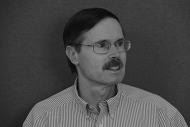Photo contributed by William M. Abbott
Dr. William M. Abbott has learned a lot about teaching and the true value of education throughout his nearly 30-year tenure at Fairfield. As an associate professor of history and as the former chair of the history department, his passion for learning and history have recently molded together in his efforts to preserve the integrity of higher education.
Abbott grew up in Menlo Park, a town in the San Francisco Bay Area. He attended a school within the University of California system because his family didn’t have enough money to afford a private university. Abbott said he settled on UC Berkeley over UCLA “because of the smog in Los Angeles.”
“I had always liked history. I’d always been good at it,” said Abbott. However, it was at UC Berkeley where he discovered his love and passion for history. “I got so excited by a great history professor there … I became a history major almost immediately, thanks to this man,” said Abbott.
This professor, a graduate of Oxford University, strongly encouraged Abbott to pursue his doctorate at Oxford after his four years at UC Berkeley. Abbott graduated from Oxford with a doctorate in modern British history in 1982. After three long years of job hunting, Abbott came to Fairfield.
“Jobs were very scarce at that time, especially in the humanities and history,” Abbott said. “For every job I was applying for, there were about a hundred applicants. I compiled an enormous stack of rejection notices before I got the job at Fairfield.”
Although Abbott has a number of published articles, teaching has always been the primary focus of his 28 years as a Fairfield professor.
“At a school like Fairfield where we don’t have a graduate program in history, per se, very little of what my research is involved with actually gets into the classroom because 90 percent of my students are lower division core students,” he said. “So in that sense, time spent working on your teaching is time spent taking away from research,” and vice versa, according to Abbott. “I just feel that the teaching is too important.”
Abbott’s original research focus was mid-17th century English history, specifically on the church, which he wrote his dissertation on. It has since switched to a focus on animal rights movements during the late 19th century. Abbott has been studying the arguments regarding the use of animals for product testing in laboratories.
Even more recently, Abbott has conducted research outside of the subject of history. He has been researching the issue of grade inflation in higher education. According to Abbott, “Over the last 30 or 40 years, the average grade has increased, given at any university, without any corresponding increase in the abilities of the students.”
Abbott said that “at Fairfield University today, work that would have earned a C+ 30 years ago is going to get you a B or B+. The average grade at Fairfield right now is a B or B+.”
The pressures to assign better grades are a result of professorial interests, according to Abbott. Professors get promoted because of publications and teaching; by giving out better grades, a professor has more time for research, allowing them to promote their careers, he said.
Abbott recalled a story from about 10 years ago, when an angry father called the Dean of the College of Arts and Sciences “and said that he wanted his daughter to get the B average he was paying for.” Abbott stressed that there is a lost acknowledgement among parents and students to recognize the connection between learning and grades.
“Students are spending a quarter of a million dollars and four years out of their lives to go here, and so many of them think that if they just take all the easy courses and wind up with a high grade point average, but having learned very little – which you can do here – then they are going get out there in the world with a diploma and that’ll just be a ticket to a really good job,” Abbott said. “What they don’t understand is that the diploma just gets your foot in the door … After that, you have to show that you’ve actually learned something.”
“It’s in the students’ interests to take the tough professors, the tough courses and tough majors … and grow,” said Abbott.
He said that students should study hard, manage their time well and still have a very rich social life. “That’s what college is for: to grow as a person, not just through academics but through interacting with others.”


Leave a Reply